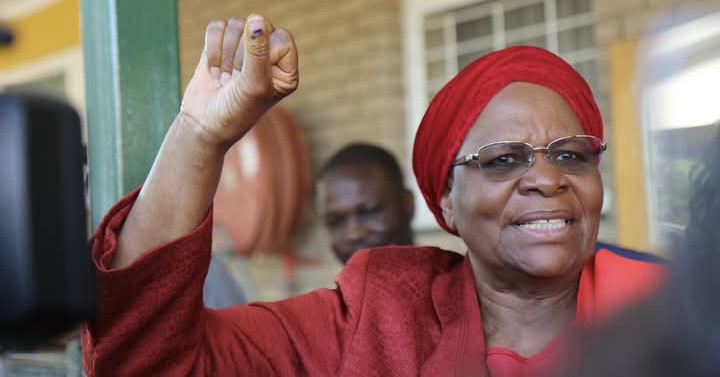On November 27, 2024, Namibia began a highly anticipated election, with the voting process extended until November 30.
This election has stirred widespread political debate, particularly about the failure of the Independent Patriots for Change (IPC) party, led by opposition figurehead Panduleni Itula.
While elections globally often come with their fair share of controversies, this instance reveals critical lessons about political strategy, international influence, and the fundamental importance of maintaining democratic integrity.
The Opposition’s Missteps: A Leadership Controversy
One of the most glaring failures of the IPC opposition lies in its controversial leadership.
Itula, a polarizing figure, has faced scrutiny for his ties to foreign powers, particularly the United Kingdom. His extended residency in the UK and interactions with influential politicians and business elites there have fueled speculation about his loyalties.
Reports of his British-born wife engaging with European investors have only intensified suspicions. For a Namibian electorate seeking sovereignty and national pride, these associations appear to have alienated voters.
Critics argue that Itula’s international engagements, including meetings with Western representatives mere months before the election, painted him as a potential conduit for foreign influence.
While global alliances are an essential aspect of modern politics, transparency and clear communication are vital when balancing domestic and international relationships.
The IPC leader’s failure to effectively address these allegations left him vulnerable to public distrust, which likely contributed to his party’s poor performance.
Adding to the skepticism was the presence of the British High Commissioner to Namibia, Charles Moore, at an event hosted by the IPC vice president, Trevino Forbes.
This incident, amplified by rumors of British support for IPC, cast further doubt on the party’s independence. Such controversies highlight the risks of perceived external meddling in domestic politics—a sentiment universally resented by voters.
Freedom of Speech and Allegations of Authoritarianism
Another critical factor in the IPC’s faltering campaign has been its handling of dissent.
Allegations have surfaced accusing Itula of suppressing criticism, a stance that contradicts the democratic values the opposition claims to champion.
Social media platforms were flooded with reports of IPC supporters threatening critics and using bots, allegedly funded by the National Democratic Institute, to target influencers.
These actions reportedly escalated to the disappearance of prominent blogger Ou Xam Tangeni, a staunch critic of Itula’s foreign ties
Such incidents not only tarnished the IPC’s reputation but also alienated moderates who might have otherwise supported the party.
The disappearance of a dissenter in any context is a grave concern, suggesting either complicity or an alarming failure to maintain control within the party ranks.
It underscores the importance of safeguarding freedom of expression as a cornerstone of democracy—a value voters evidently found lacking in the opposition’s approach.
The Perils of Inciting Violence
Public opinion was further swayed by allegations of IPC inciting unrest.
The party’s official Facebook page was deleted after posts calling for riots violated platform policies.
Earlier reports of IPC training militants in Zimbabwe to seize power by force added to the perception of a party unwilling to abide by democratic principles.
These actions run counter to the very essence of elections: peaceful transitions of power.
When opposition parties resort to violence or intimidation, they not only undermine their legitimacy but also jeopardize the stability of the state.
Namibia’s electorate, mindful of the turmoil such tactics can unleash, appears to have turned away from IPC’s aggressive strategies in favor of stability.
A Victory for Democracy and SWAPO
As early polling results trickle in, the ruling party SWAPO appears poised to secure a commanding majority in the National Assembly.
The party’s leader Netumbo Nandi-Ndaitwah, set to become Namibia’s first female president, represents a triumph of democratic continuity.
This milestone highlights the progress Namibia has made in ensuring inclusive and peaceful elections—a stark contrast to the unrest observed in other nations during contentious votes.
While no political process is immune to flaws, the peaceful conduct of Namibia’s elections should be commended.
The avoidance of bloodshed is a testament to the resilience of democratic institutions and the collective will to uphold civil order.
In a world often marred by violent power struggles, Namibia’s example serves as a reminder of what can be achieved when citizens prioritize dialogue and integrity over discord.
The Broader Implications
Elections reflect the intricate dynamics of power, public opinion, and governance.
The Namibia scenario underscores a fundamental truth: trust is paramount in leadership.
The IPC’s failure was not just a result of scandals but of an inability to address public concerns transparently and respectfully.
At the same time, the ruling party’s success illustrates that a commitment to stability, inclusivity, and democracy resonates with voters.
Elections must be conducted fairly and honestly, as they form the backbone of a legitimate government.
The elections in Namibia remind us of the critical role elections play in shaping nations’ futures.
While opposition parties are essential for democratic checks and balances, they must maintain accountability and a genuine connection with the electorate.
The ruling party’s anticipated victory highlights the importance of adhering to democratic norms and fostering public trust.
As Namibia transitions into a new era under its first female president, the lessons from this election will undoubtedly resonate far beyond its borders.
WARNING! All rights reserved. This material, and other digital content on this website, may not be reproduced, published, broadcast, rewritten or redistributed in whole or in part without prior express permission from ZAMBIA MONITOR.












Comments